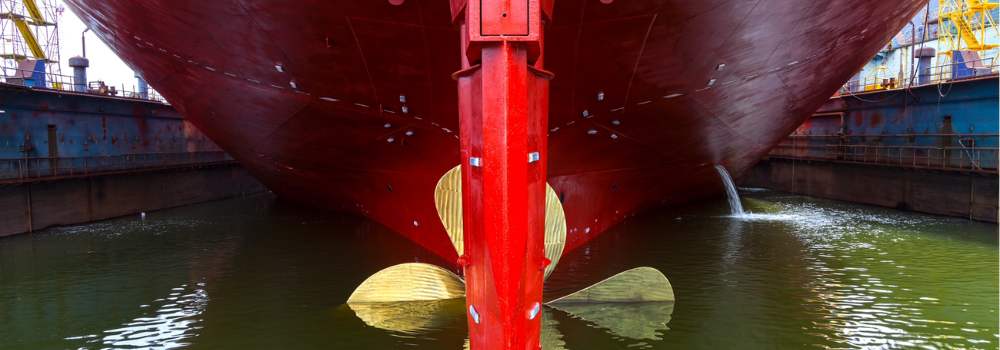In recent years, the shipping industry has faced several significant events, from the onset of the Covid-19 pandemic to ongoing geopolitical issues that have caused hundreds of vessels to reroute. These events have impacted the various sectors of shipping, including the marine insurance industry.
Understanding the specific risks and requirements of your profession or industry is crucial in determining the correct type of insurance coverage for your needs. For instance, many individuals and businesses in the shipping industry will need indemnity insurance. However, it’s essential to understand the differences between the more commonly known protection and indemnity (P&I) insurance and professional indemnity (PI) insurance.
Both serve distinct purposes and protect against different risks and liabilities, used by various professionals and businesses. The fundamental difference between P&I and PI is that P&I is a must-have for shipowners, and they cannot trade without it. PI is not compulsory, unless included in a contract, and is bought by marine professional service companies, rather than shipowners.
P&I is a type of marine liability insurance specifically designed to provide shipowners coverage. It offers a wide range of liability coverage, including, but not limited to, damage to cargo, liability for injury or death of crew and passengers, collision damages, environmental pollution, and wreck removal. In essence, it focuses on the liabilities associated with operating a vessel.
P&I insurance also covers different liabilities associated with ship operations. It also includes legal costs and expenses incurred while defending against claims or pursuing recoveries. P&I insurances are typically provided by P&I Clubs, which are mutual insurance associations. These clubs allow members to pool their risks, leading to more extensive coverage terms and creating a support network that offers legal and technical advice on maritime issues.
PI insurance is intended for individuals and businesses operating within the maritime sector that provide professional advice or services, such as maritime consultants, naval architects, marine surveyors, ship managers and brokers. The coverage is specifically designed to indemnify claims arising from errors, negligence, or omissions in the advice or services provided. It also includes cover for any legal costs incurred in such claims.
The scope of the coverage is focused on negligence / errors or omissions in the services or advice provided by professionals. It does not typically cover physical injuries or property damage, which would be covered under other types of liability insurance.
Understanding the nuances between these two types of insurance in the maritime sector is key to ensuring that all aspects of maritime operations and professional services are adequately protected against the unique risks faced by those in the industry.
International Transport Intermediaries Club (ITIC), the world’s leading PI insurer for transport, including maritime professionals, says that specific roles are complex and critical and invariably subject to high exposure and responsibility if things go wrong. Therefore, ensuring maritime professionals have the right PI insurance coverage is essential to any business risk management strategy.
As part of its role in highlighting the importance of PI insurance to the maritime sector, ITIC publishes a Claims Review biannually to show how seemingly simple errors can have significant implications. Through its various case studies, these types of reviews help the industry and individuals better understand and mitigate risks.
In one instance, ITIC highlighted a case in which errors on updated Bills of Lading (BoL) resulted in an oil cargo being collected by the wrong consignee, leading to a three-way split for the cost of damages.
During a petroleum products shipment, the charterers invoked a clause allowing them to change the port of discharge and BoL with a Letter of Indemnity (LOI). The owner prepared new BoLs to be delivered via the shipbroker, who failed to pass them on to the charterers.
The charterers authorised the Master to sign new BoLs, but the new bills had a different consignee name. The new consignee collected the cargo before the error was noticed, resulting in legal action from the actual consignee and the bank. The charterer suffered an initial loss of US$ 400,000 due to the delay and blamed the shipbroker for not providing the amended bills for review.
The shipbroker, which had taken out sufficient PI insurance through ITIC, was able to call on its insurer to help mitigate the damages. With ITIC’s support through mediation and the PI insurance cover, the total damages were reduced to US$75,000, which were split evenly between the charterers, owners, and shipbrokers.
Many companies often underestimate the need for PI insurance, but upon discussing a scenario, they realise that they have previously encountered a similar situation and used their own funds to cover the claims. Having the right PI insurance could have preserved their funds and avoided financial setbacks. As is often the case, the true value of insurance is often only realised when a claim arises.
In the maritime industry, both P&I and PI insurance are essential. Maritime professionals and businesses need to understand the differences between them, as well as their critical importance in ensuring financial damages are minimised and comprehensive coverage.

